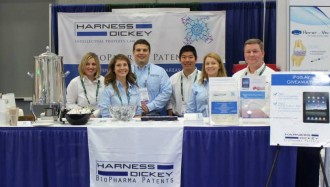
March 11, 2015
“FDA’s First Biosimilar Approval Greeted With Optimism; Naming, Pricing Still Issues,” Bloomberg BNA, March 11, 2015
Attorneys greeted the FDA’s first approval of a biosimilar using the abbreviated approval pathway under the Biologic Price Competition and Innovation Act (BPCIA) as a good first step but cautioned that the agency picked “low-hanging fruit.”
…
Novartis AG’s biosimilar version of Amgen Inc.’s biologic cancer drug Neupogen, which Novartis will call Zarxio, won FDA approval March 6 under the BPCIA, which is part of the Affordable Care Act (see related story in the Federal News section). Neupogen generated $1.2 billion in sales in 2014 as a therapy to help increase cancer patients’ white blood cell counts and fight infections. Biosimilars are similar but not identical to the brand biologic because biologics are manufactured from living organisms rather than chemically-derived.
According to a RAND Corp. report in November 2014, biosimilars are predicted to cut prices of biologics from 10 percent to 50 percent, considerably less than the 80 percent discounts chemically-derived generic drugs offer compared to brand name drugs. Goodwin Procter’s “Biosimilars: A Guide to Regulatory and Intellectual Property Issues” says that in Europe, the average cost to the consumer of a biosimilar is 15 percent to 30 percent less than the brand or reference biologic product (9 LSLR 147, 2/6/15).
The FDA approval clears the regulatory hurdle for the release of Zarxio but not the court challenges. Citing that Zarxio could be approved as early as March 8, Amgen urged the U.S. District Court for the Northern District of California to order Novartis’s Sandoz unit not to begin marketing its Zarxio (9 LSLR 198, 2/20/15).
According to Amgen, Sandoz deliberately failed to provide Amgen with a copy of its aBLA and the accompanying information describing its process for manufacturing the biosimilar product within 20 days of receiving notification that the FDA had accepted its application.
…
Kisuk Lee of Harness IP, St. Louis, told Bloomberg BNA in a March 9 phone interview that the advance of biosimilars will remain uncertain until there are more legal precedents concerning the BPCIA.
Lee said, “Other companies are developing biosimilars, and each product will have its own characteristics
and its own unique problems. This is a good first step, but it’s just a first step.”
Lee suggested that it is best to wait until the FDA releases its guidance, which it says will be in the “near
future.”
…


